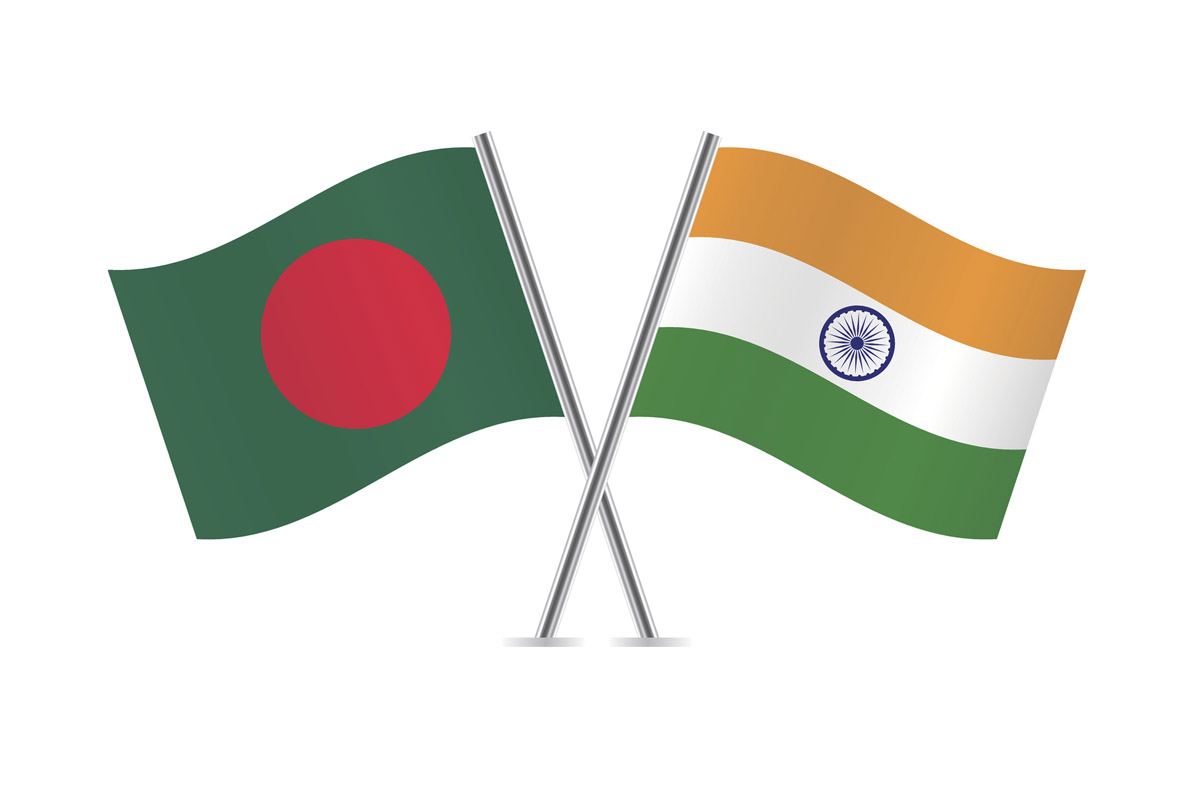Former RBI Governor appointed Principal Secretary-II to PM
Dr P K Mishra is the Principal Secretary-I to the Prime Minister.
The Bangladesh PM is the first top foreign leader to pay a state visit to India after the formation of a government by Mr Modi for the third successive time.

representational image (iStock)
Prime Minister Narendra Modi on Saturday reassured his Bangladeshi counterpart Sheikh Hasina of India’s commitment to realising ‘Bangabandhu’ Sheikh Mujibur Rahman’s vision of a stable, prosperous and progressive Bangladesh as the two neighbouring nations signed ten major accords in diverse fields, including defence, and announced the launch of a train service between Rajshahi and Kolkata and a bus service between Chittagong and Kolkata.
”We had extensive discussions on further strengthening defence cooperation, from defence production to modernisation of armed forces. We have decided to strengthen our engagement on counter-terrorism, de-radicalisation and peaceful management of borders. We share a common vision for the Indo-Pacific Oceans Initiative,” Mr Modi said at a joint media interaction with Sheikh Hasina after wide-ranging talks between the two leaders.
Advertisement
The Bangladesh PM is the first top foreign leader to pay a state visit to India after the formation of a government by Mr Modi for the third successive time.
Advertisement
The Indian leader said the two countries have today prepared a futuristic vision for cooperation in new areas. The youth of both countries will benefit from the consensus reached on cooperation in many areas such as Green partnership, Digital Partnership, Blue Economy, Space and ‘Maitri Satellite’.
Mr Modi said the two countries have decided to start negotiations at the technical level for the renewal of the 1996 Ganga Water Treaty.
He said the two countries also propose to take their economic relations to new heights and have agreed to start negotiations on a Comprehensive Economic Partnership Agreement (CEPA).
Sheikh Hasina, on her part, described India as a major neighbour, trusted friend and regional partner of Bangladesh. ”Bangladesh greatly values our relations with India, which were born during our war of liberation in 1971. I pay homage to the brave, fallen heroes of India who sacrificed their lives during our war of liberation in 1971,” she said.
Briefing reporters on the meeting between the two leaders, Foreign Secretary Vinay Kwatra said a technical committee has been constituted to look at the Teesta Water restoration Project. The committee’s mandate has more to do with the management of water flow than water sharing.
On the decision to enhance defence cooperation between the two countries, Mr Kwatra said India will help Bangladesh armed forces in modernisation and capacity-building. India will also see how it can fulfil the needs of the Bangladeshi forces. The MoU between the two countries, he said, pertains to cooperation concerning military education in the field of strategic and operational studies.
Mr Kwatra said the two leaders agreed to give an impetus to bilateral and sub-regional cooperation in a vision document that seeks to realise India’s vision of a ‘Viksit Bharat’ by 2047 and Bangladesh’s vision of a ‘Smart Bangladesh’ by 2041.
The MoUs signed between the two sides include Shared Vision for India-Bangladesh Digital Partnership, Shared Vision for Green Partnership, Maritime Cooperation and Blue Economy, Railways Connectivity, Cooperation in Health and Medicine and Disaster Management.
The two countries also made some important announcements after the talks between the two leaders.
These include: e-visa for medical patients from Bangladesh, new Assistant High Commission of India in Ranpur in Bangladesh, commencement of a goods train between Gede-Darsana and Haldibari-Chilahati up to Dalgaon, construction of an Inland Container Depot (ICD) at Sirajganj under grant assistance, commencement of export of 40 MW of power from Nepal to Bangladesh through Indian grid and 350 training slots for Bangladeshi police officers.
Advertisement